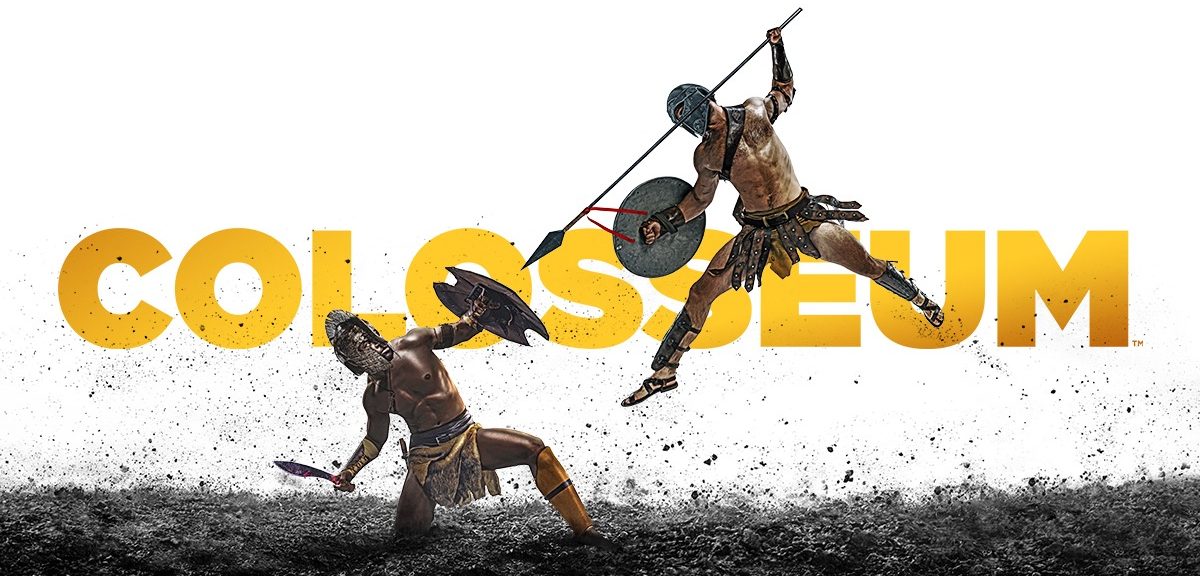‘Colosseum’, a symbol of the Roman Empire’s power, presented by History TV18!
The #Colosseum is an enduring emblem of Roman history, which came to symbolise the might of an Empire. Set against the backdrop of this iconic landmark, #HistoryTV18 is set to transport viewers to a bygone era with the launch of blockbuster show ‘Colosseum’, which will air every Saturday-Sunday at 10:15 PM, 17th December 2022 onwards. This series takes us through the transformation of the arena, holding a mirror to the changing socio-political currents and demonstrating the rise and fall of Imperial Rome.
Spanning several centuries, this eight-part series unfolds chronologically, from the architectural challenges of building the amphitheatre and its grand opening games, to its eventual decline following deep religious divides, earthquakes, fire and neglect. During the height of Rome, the Colosseum became the stage upon which gladiatorial fights, animal hunts, and public execution of criminals took place, in the name of entertaining the masses.
With gripping commentary by leading scholars and experts, dramatic live-action scenes and special effects, History TV18 offers an immersive experience. Each episode infuses excitement into the personal narrative of diverse historical characters; leaders and builders whose vision and skills helped shape this impressive feat of engineering, gladiators who shed blood, sweat and tears upon its sands, enduring creative forms of cruelty and facing death with bravery, and the public who bore witness to the action and amusement,
In AD 80, Emperor Titus launched the Colosseum with 100 days of gladiatorial games. This inaugural edition included one of the most famous matches between the barbarian Priscus, and Rome’s champion Verus, who had formed a close bond in the harsh environment of their training school. As they ascended into the arena to duel to the death in front of 50,000 spectators, did they succumb as slaves or become masters of their fate?
Each emperor sought to outdo the previous one; as the empire expanded, so did the diversity of exotic beasts from far corners of the world. The purpose was twofold – to distract the crowds, and showcase Rome’s imperial reach, which stretched from Britain to Syria at the height of its influence. Over a million animals were slaughtered in the arena by trained beast masters. The most famous beast master, Carpophorus, faced an unprecedented challenge, being forced to battle 20 wild creatures in a day.
In AD 107, Bishop Ignatius of Antioch was part of a growing underground religion threatening Roman traditions: Christianity. During Trajan’s 123 days of games, the emperor decided to publicly execute him. But did this high-profile killing send a strong message, or spread the word of Christ further than he could have anticipated?
While other emperors put great value on spectacles, only one stepped out of the Imperial Box and into the arena: Commodus. A far cry from his father, the great Marcus Aurelius, he was quick to make enemies with the elite ruling body – the Senate. As the empire crumbled and his popularity plummeted, a deadly game of cat and mouse ensued.
Whether chasing fame, fortune or freedom, tune in to ‘Colosseum’ every weekend on History TV18, to learn how heroes were forged in its dust and heat, and how others perished in a game of politics and power during this pivotal period in the world history.
Colosseum, Premieres 17th December 2022, 10:15pm, every Saturday – Sunday, on History TV18.


